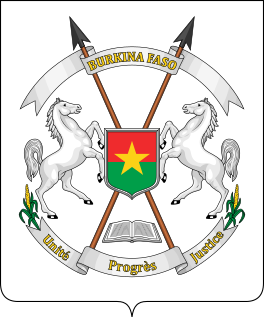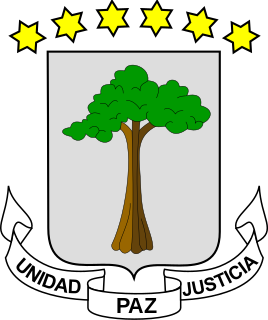International human rights law (IHRL) is the body of international law designed to promote human rights on social, regional, and domestic levels. As a form of international law, international human rights law are primarily made up of treaties, agreements between sovereign states intended to have binding legal effect between the parties that have agreed to them; and customary international law. Other international human rights instruments, while not legally binding, contribute to the implementation, understanding and development of international human rights law and have been recognized as a source of political obligation.

The Convention for the Suppression of the Traffic in Persons and of the Exploitation of the Prostitution of Others was approved by the United Nations General Assembly on 2 December 1949 and entered into force on 25 July 1951. The preamble states:
"Whereas prostitution and the accompanying evil of the traffic in persons for the purpose of prostitution are incompatible with the dignity and worth of the human person and endanger the welfare of the individual, the family and the community"

Commercial sexual exploitation of children (CSEC) is a commercial transaction that involves the sexual exploitation of a child, such as the prostitution of children, child pornography, and the sale and trafficking of children. CSEC may involve coercion and violence against children, economic exploitation, forced labour, contemporary slavery

The United Nations Convention against Transnational Organized Crime (UNTOC) is a 2000 United Nations-sponsored multilateral treaty against transnational organized crime. The Convention was adopted by a resolution of the United Nations General Assembly on 15 November 2000. It is also called the Palermo Convention, and its three supplementary protocols are:
The Protocol to Prevent, Suppress and Punish Trafficking in Persons, Especially Women and Children is a protocol to the Convention against Transnational Organised Crime. It is one of the three Palermo protocols, the others being the Protocol against the Smuggling of Migrants by Land, Sea and Air and the Protocol against the Illicit Manufacturing and Trafficking in Firearms.

Trafficking of children is a form of human trafficking and is defined as the "recruitment, transportation, transfer, harboring, and/or receipt" of a child for the purpose of slavery, forced labor and exploitation. This definition is substantially wider than the same document's definition of "trafficking in persons". Children may also be trafficked for the purpose of adoption.

Human trafficking in South Africa occurs as a practice of forced labour and commercial sexual exploitation among imported and exported trafficked men, women, and children. Generally, South African girls are trafficked for the purposes of commercial sexual exploitation and domestic servitude, while boys are used for street vending, food service, and agriculture. Anecdotal evidence suggests that South African children can also be forced to provide unpaid labor for landowners in return for land occupancy, living accommodation, or for maintaining labor tenancy rights. In any case, this form of unpaid labor has caused human trafficking to be described as a modern form of slavery. Human trafficking is the result of a combination of several factors, including gender inequality, economic instability, and political conflict. Since Africa experiences all of these, it is an active hub for human trafficking. Many urge for the need of a cultural shift to reduce instances of human trafficking by lessening the demand for sex and unpaid labor.

According to the United States' State Department, Japan is a major destination, source, and transit country for men and women subjected to forced labor and sex trafficking. Victims of human trafficking include male and female migrant workers, women and children lured to Japan by fraudulent marriages and forced into prostitution, as well as Japanese nationals, "particularly runaway teenage girls and foreign-born children of Japanese citizens who acquired nationality." According to the 2014 U.S. State Department's Trafficking in Persons Report, "The Government of Japan does not fully comply with the minimum standards for the elimination of trafficking; however, it is making significant efforts to do so."

Human rights in Madagascar are protected under the country's constitution. However the extent to which such rights are reflected in practice, is subject to debate. The 2009 Human Rights Report by the United States Department of State noted concerns regarding the suspension of democratic electoral processes as the result of recent political unrest. Furthermore, reports of corruption, arbitrary arrest and child labor highlight the prevalence of human rights issues in the country.

Human rights in Cameroon are addressed in the constitution. However, the 2009 Human Rights Report by the United States Department of State noted concerns in regard to election irregularities, security forces torture and arbitrary arrests.

Human rights in Burkina Faso are addressed in the constitution. The 2009 Human Rights Report by the United States Department of State noted concerns regarding restrictions on the press and the operation of the judiciary system.
The United Nations Global Initiative to Fight Human Trafficking (UN.GIFT) is a multi-stakeholder initiative providing global access to expertise, knowledge and innovative partnerships to combat human trafficking.

Equatorial Guinea is known for human rights abuses. Under the current government it has "limited ability of citizens to change their government; increased reports of unlawful killings by security forces; government-sanctioned kidnappings; systematic torture of prisoners and detainees by security forces; life threatening conditions in prisons and detention facilities; impunity; arbitrary arrest, detention, and incommunicado detention; harassment and deportation of foreign residents with limited due process; judicial corruption and lack of due process; restrictions on the right to privacy; restrictions on freedom of speech and of the press; restrictions on the rights of assembly, association, and movement; government corruption; violence and discrimination against women; suspected trafficking in persons; discrimination against ethnic minorities; and restrictions on labor rights."

Human trafficking is a crime in New Zealand under Section 98D of the Crimes Act 1961. In 2002, the New Zealand Government ratified the Protocol to Prevent, Suppress and Punish Trafficking in Persons, especially Women and Children, a protocol to the United Nations Convention against Transnational Organized Crime (UNTOC). New Zealand participates in efforts to combat human trafficking in the Asia-Pacific region, and has a leadership role in the Bali Process on People Smuggling, Human Trafficking and related Transnational Crime.

The Blue Heart Campaign is an international anti-trafficking program started by the United Nations Office on Drugs and Crime (UNODC). Established in 1997, the UNODC supported countries in implementing three UN drug protocols. In 2000, after the UN General Assembly adopted the Protocol to Prevent, Suppress and Punish Trafficking in Persons, the UNODC became the “guardian” of that protocol and assumed the functions of fighting against human trafficking. The Blue Heart Campaign was launched in March 2009 by the Executive Director of the UNODC, Antonio Maria Costa, during his address to the World’s Women’s Conference meeting in Vienna. The campaign’s symbol is a blue heart that signifies the sadness of those who are trafficked while reminding the world of the cold-heartedness of those who buy, sell and traffic human beings.
The Protocol against the Illicit Manufacturing and Trafficking in Firearms, Their Parts and Components and Ammunition is a treaty on anti-arms trafficking including Small Arms and Light Weapons that is supplemental to the Convention against Transnational Organized Crime. It is one of the so-called Palermo protocols.

Human trafficking in Southeast Asia have long been a problem for the area and still is prevalent today. It has been observed that as economies continue to grow, the demand for labor is at an all-time high in the industrial sector and the sex tourism sector. A mix of impoverished individuals and the desire for more wealth creates an environment for human traffickers to benefit in the Southeast Asia region. Many nations within the region have taken preventative measures to end human trafficking within their borders and punish traffickers operating there.











